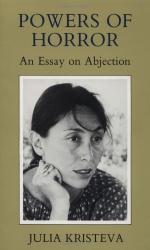
|
| Name: _________________________ | Period: ___________________ |
This quiz consists of 5 multiple choice and 5 short answer questions through Chapter 10, In the Beginning and Without End . . ..
Multiple Choice Questions
1. Kristeva says the fears a child has are pre-linguistic and therefore are what?
(a) Misunderstood.
(b) Inexpressible.
(c) Unknown.
(d) Explainable.
2. In which of Celine's books does his character Molly appear?
(a) School of Corpses.
(b) Trifles for a Massacre.
(c) Journey to the End of the Night.
(d) Death on the Installment Plan.
3. What belief states that Christ is simultaneously man and God?
(a) Incarnation.
(b) Embodiment.
(c) Manifestation.
(d) Epitome.
4. A theme Kristeva points out in Chapter 3 is that what is inside the margin is good, and whatever is outside of the margin is what?
(a) Confusing.
(b) Clean.
(c) Nonexistent.
(d) Bad.
5. In Christ's teachings, Kristeva says he wanted to move away from the single minded absolutism of whom?
(a) The Jews.
(b) The ancient Greeks.
(c) The Pagans.
(d) The ancient Egyptians.
Short Answer Questions
1. When looking at impurity and the abject, Kristeva says things which extend beyond the body's margin are considered what?
2. In some societies, Kristeva says a person who is defiled becomes clean how?
3. During the 1930s, what group does Kristeva say was unhappy with the division that was caused by economic inequality, even if they did not call for radical economic restructuring?
4. What race did Celine seem fascinated with?
5. According to Kristeva's definition of the abject, the abject cannot be acknowledged through what?
|
This section contains 223 words (approx. 1 page at 300 words per page) |

|




